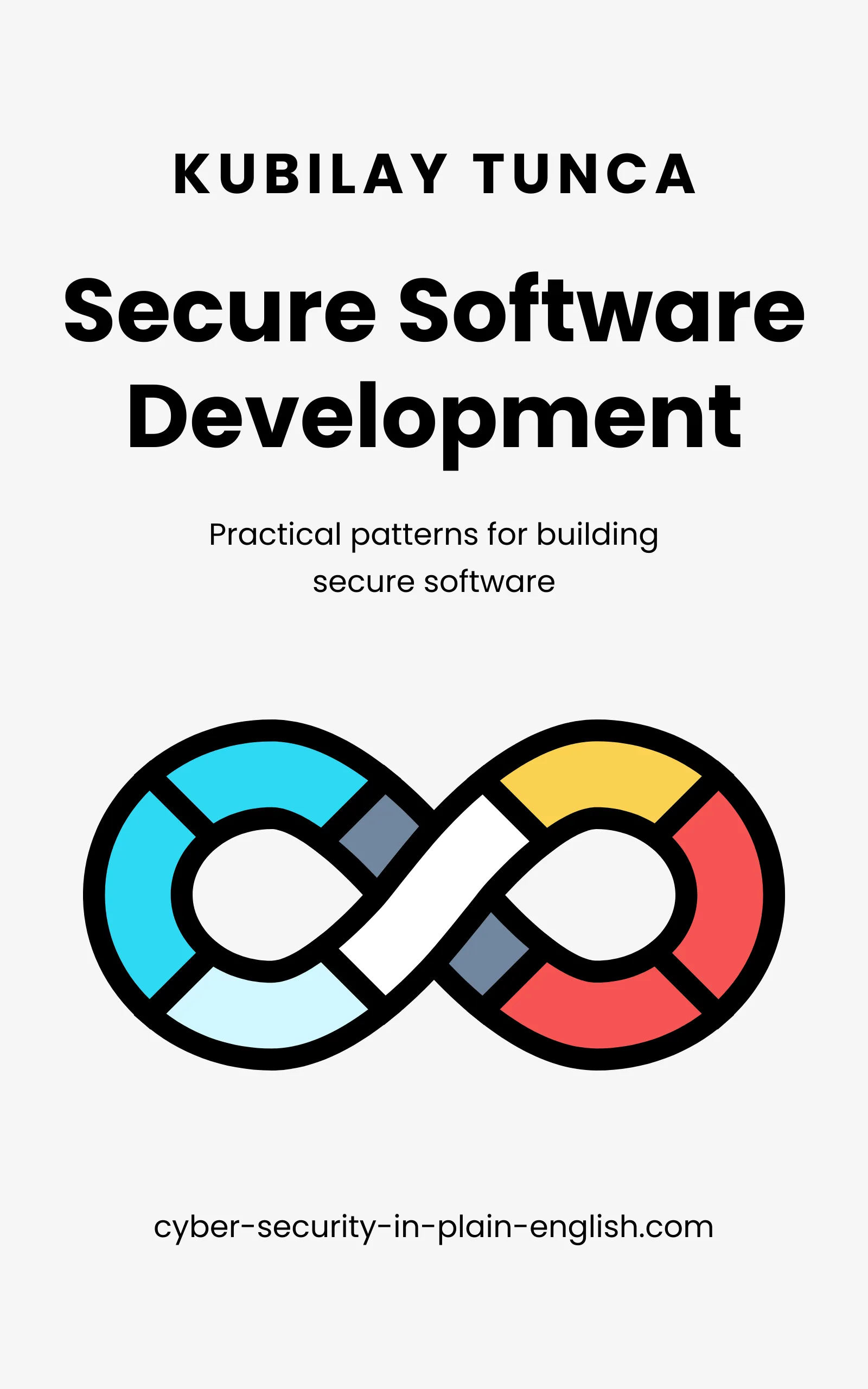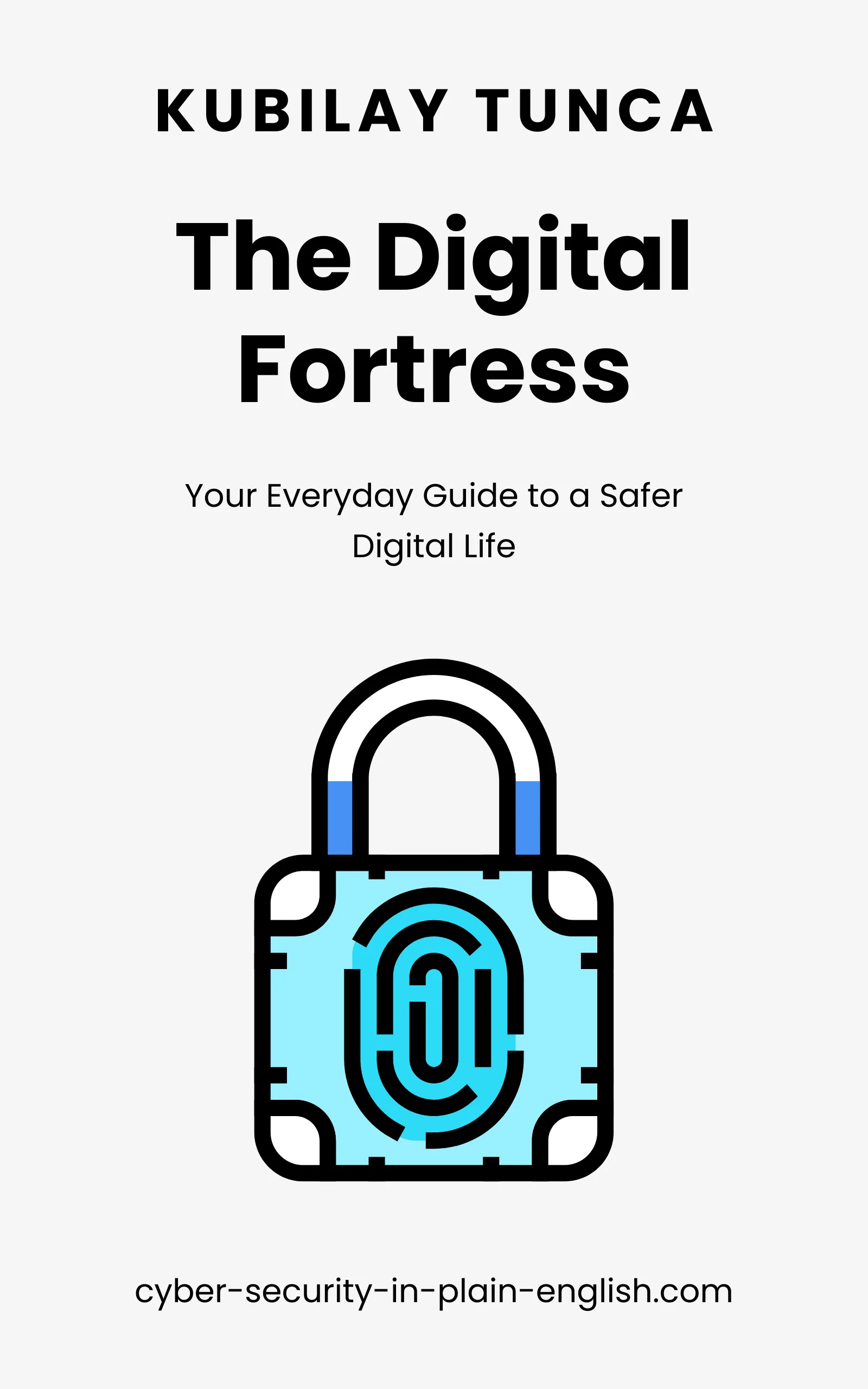Published
- 6 min read
How Cookies Affect Your Privacy and How to Manage Them

How to Write, Ship, and Maintain Code Without Shipping Vulnerabilities
A hands-on security guide for developers and IT professionals who ship real software. Build, deploy, and maintain secure systems without slowing down or drowning in theory.
Buy the book now
Practical Digital Survival for Whistleblowers, Journalists, and Activists
A practical guide to digital anonymity for people who can’t afford to be identified. Designed for whistleblowers, journalists, and activists operating under real-world risk.
Buy the book now
The Digital Fortress: How to Stay Safe Online
A simple, no-jargon guide to protecting your digital life from everyday threats. Learn how to secure your accounts, devices, and privacy with practical steps anyone can follow.
Buy the book nowHow Cookies Affect Your Privacy and How to Manage Them
Introduction
Cookies are small files that websites store on your device to remember information about you, such as login details, preferences, and browsing habits. While cookies make browsing more convenient, they can also impact your privacy, as advertisers use them to track your online behavior and build profiles for targeted ads. Understanding how cookies work and learning how to manage them is essential for protecting your online privacy. This article explains the role of cookies in tracking and offers simple steps to manage them effectively.
What Are Cookies and How Do They Work?
Cookies are text files that websites create and store on your browser when you visit a site. They help websites remember your actions and preferences, making browsing more convenient by storing information like login status, shopping cart contents, and language preferences. Cookies generally make your browsing experience smoother, but not all cookies serve the same purpose.
Types of Cookies and Their Impact on Privacy
There are several types of cookies, each with different purposes and implications for your privacy:
1. First-Party Cookies
First-party cookies are created and stored by the website you’re visiting directly. These cookies store your preferences, login details, and other information needed for a seamless browsing experience. First-party cookies are generally considered less invasive because they’re only accessible to the website that created them.
Privacy Impact: First-party cookies are essential for basic functionality and user experience, but they don’t contribute significantly to cross-site tracking.
2. Third-Party Cookies
Third-party cookies are created by services other than the website you’re visiting, often by advertisers and social media platforms. These cookies track your activity across multiple sites, collecting data on your interests and behavior to create detailed profiles.
Privacy Impact: Third-party cookies are widely used for tracking and targeted advertising. They’re considered invasive because they can collect significant information about your browsing habits without your explicit consent.
3. Session Cookies
Session cookies are temporary cookies that expire once you close your browser. They store information needed for a single session, like login status or shopping cart contents. Session cookies don’t persist, so they don’t contribute to long-term tracking.
Privacy Impact: These cookies don’t pose a significant privacy risk as they disappear after each session and aren’t used for long-term tracking.
4. Persistent Cookies
Persistent cookies remain on your device even after you close your browser. They store information like login credentials and site preferences, allowing websites to remember you across sessions. Persistent cookies can last for months or even years.
Privacy Impact: Persistent cookies can be used for tracking, especially when associated with third-party services, and may affect privacy over time.
Why Cookies Affect Your Privacy
While cookies are helpful for personalized browsing, they can also impact your privacy by allowing companies to track your behavior across the internet. Here’s how cookies affect your privacy:
- Behavioral Tracking: Cookies collect data on the sites you visit, the products you view, and the links you click. This information can be used to build detailed profiles and target you with specific ads.
- Data Sharing with Third Parties: Third-party cookies often send data to advertisers, social media companies, and other organizations, giving them insight into your preferences and online activity.
- Location and Device Tracking: Cookies can store information about your device and approximate location, which helps advertisers create location-based profiles.
While this data collection enables personalized ads, it also reduces your control over who has access to your information.
How to Manage Cookies for Better Privacy
Managing cookies is an effective way to regain control over your online data and limit tracking. Here are some practical ways to manage cookies:
1. Block Third-Party Cookies
Most browsers allow you to block third-party cookies, which are the main source of cross-site tracking. By blocking these cookies, you can prevent advertisers from tracking your behavior across multiple websites.
To block third-party cookies, go to your browser’s privacy settings. In Chrome, for example, navigate to Settings > Privacy and Security > Cookies and other site data, then select “Block third-party cookies.”
2. Regularly Clear Cookies
Clearing cookies regularly removes stored data from websites you’ve visited. This practice helps limit long-term tracking and ensures that outdated or unnecessary cookies don’t remain on your device.
To clear cookies, open your browser’s history or privacy settings and select the option to delete cookies and site data. Most browsers allow you to clear cookies from specific sites or from all sites.
3. Use Browser Extensions to Manage Cookies
Several browser extensions can help you manage cookies more effectively:
- Cookie AutoDelete: Deletes cookies automatically when you close a tab, preventing them from tracking you after you leave a site.
- Privacy Badger: Blocks cookies and trackers that follow you across websites, improving privacy without much manual intervention.
- uBlock Origin: Primarily an ad blocker, uBlock Origin also blocks trackers and third-party cookies, giving you more control over what data websites can collect.
These extensions make cookie management easier by automating the process and blocking trackers in real time.
4. Use Private or Incognito Mode
Private or incognito mode in most browsers prevents cookies from being stored on your device after a session ends. While in private mode, websites can still place cookies, but these cookies are deleted as soon as you close the window.
To enable incognito mode, open a new private window from your browser’s settings menu. Keep in mind that incognito mode doesn’t hide your IP address, so pairing it with a VPN can provide additional privacy.
5. Enable Do Not Track (DNT)
The Do Not Track (DNT) feature sends a request to websites asking them not to track you. While DNT doesn’t enforce tracking restrictions, it’s a way to express your preference for privacy. You can enable DNT in your browser’s privacy settings, although not all websites honor it.
Advanced Cookie Management Tips
For those who want to go further in managing cookies, here are a few additional tips:
- Use Multiple Browsers: Use different browsers for specific activities, such as one for work and another for personal browsing, to limit cookie crossover.
- Clear Cookies on a Schedule: Some browsers allow you to set a schedule for clearing cookies. This helps keep your device clean of unnecessary tracking cookies.
- Use a VPN for Enhanced Privacy: A VPN hides your IP address, making it harder for websites to link your activity across different sessions.
Common Myths About Cookies
There are several misconceptions about cookies that can impact how you approach privacy:
- “Cookies are Always Bad for Privacy.” While cookies can be used for tracking, not all cookies invade your privacy. First-party and session cookies are generally harmless and can improve browsing.
- “Deleting Cookies Breaks Websites.” While deleting cookies may log you out of accounts, it doesn’t typically break websites. You may need to re-enter some preferences, but it’s generally harmless.
- “Incognito Mode Blocks Cookies Completely.” Incognito mode prevents cookies from being saved on your device after you close the session, but cookies can still be used during the session.
Conclusion
Cookies are a fundamental part of online browsing, but they also pose privacy risks, especially when used for tracking by third parties. By understanding the types of cookies and how they work, you can take control of your data. Blocking third-party cookies, clearing cookies regularly, and using privacy-focused browser extensions are all effective ways to manage cookies and protect your online privacy.
With the right approach, you can enjoy a more private browsing experience, reducing the amount of data websites collect and maintaining control over your digital footprint.